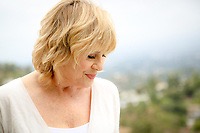The Baby Boomer Blues
We baby boomers are in a pickle. The constant look of surprise on our faces is more than bad Botox. We like getting senior discounts at the movie theater, but we’re pissed off when the kid behind the counter doesn’t look surprised. We finally can afford to buy the expensive stiletto heels we always lusted after, but now our hips and feet hurt like hell when we’re wearing them. We love our iPhones but we’re leery about using FaceTime and Zoom because we think we look wizened on the screen. We’r annoyed when someone tells us we look great “for our age,” wishing we could turn back time and know as much as we know now.
When we were young, my friends and I were sure we would never get old and now it’s devastating to wake up in the morning with aches, pains, and wrinkles that weren’t there before. So much has changed that we never expected. We’re stunned and disappointed when we look in the mirror. Our sense of balance has become undependable. We search for words and names that used to be at our fingertips. Our abilty to move around has become all about spare parts. Titanium hips and knees. Shoulder replacements. Dental
crowns and implants. Glasses and hearing aids which, by the way, is unfair since glasses are a fashion statement and hearing aids are shameful and designed to be invisible. Is it better to have trouble seeing than being hard of hearing?
When I consider how my generation imagined the future when we were in our twenties and compare it to the reality we now
face, it’s a wonder any of us can function at all. We’re suffering from a strange epidemic that I call the Baby Boomer Blues:
• When we were young and carefree, we vowed never to trust anyone over thirty, and here we are, in our sixties and seventies.
• We can’t explore alterante realities by “turning on, tuning in, and dropping out” like we did before, à la Timothy Leary, because our bodies can’t handle the drugs.
• We used to take LSD to uplift our moods and feel better about the world. Now we take Prozac.
• We judged anyone who didn’t have long hair, and today a lot of us are going bald.
• We strove to overcome racial prejudice and become “color blind.” Now we need glasses.
• Women grew the hair on our legs and underarms because we wanted to be “natural.” Now we’re having it waxed and lasered off, all over our bodies and we’re getting fillers, plastic surgery and lying about our age.
• We used to live in communes with “extended family.” Now we isolate in private worlds, our heads perpetually stuck in a maze of electronic devices.
• We used to fall in love by gazing into each other’s eyes. Now we have online romances with
people we’ve never met
• We used to measure our worth in being productive and getting things done. Now all we want is to be quiet and find some peace.
What the hell happened? Our revolutionary philosophies,
rituals and favorite toys like correcting selectric typewriters, answering machines, and ice cube trays are falling under the categories of “quaint” and “outdated.” Everything has changed as we realize that we have more time behind us than ahead of us. It seems that what we thought and what we got are diametrically opposed. It feels like time is speeding up. Athletes best each other by one one-hundredths of a second and unless you’re a rocket scientist,
forget about helping your kid do their math homework.
The only way I cope is to turn to something I learned when I was coming of age: Stay in the moment.
“Be Here Now,” the title of a spiritual book that the late Baba Ram Das published in 1971, was stunning in its simplicity. He suggests that we can only find peace when we stop projecting into the future or the past and be present for each moment as it unfolds. The book sold upwards of three million copies, it was considered the
counterculture bible and an antidote for our fear of aging and suffering. The Buddist-inspired expression, “be mindful,” refers to the same kind of consciousness. It’s about facing the unavoidable changes in our lives with grace and compassion for ourselves. Not running away or distracting but facing our fears and figuring out how to be with them.
The way we deal with these things in the West is so different from how they view them in the East. The elderly are revered in the East and reviled here in the West. In our world where youth is celebrated and aging is dreaded, it’s no wonder we have such a hard time embracing our sags and wrinkles. I resent that society considers my
wrinkles and lines unsightly and expects me to hide them so no one will know how old I am. Instead of seventy being the new sixty, why can’t seventy just be seventy?
But however we feel about aging, the time will come when all of us baby boomers have left the building. We have no idea what we cone next or if we actually go anywhere. We hope that traces of how we spoke, felt and smelled will live on in our loved one’s minds. We ask ourselves, Who do we love? Have we told them? What do we
want to leave behind? These are the things we contemplate, the questions without answers, as we blindly move forward along the path to the inevitable. As I get older and more contemplative, as I feel like I know less, no more than I did before, I hope that when I die, people will say, “She didn’t have any answers but she sure had some great questions.”


Recent Comments